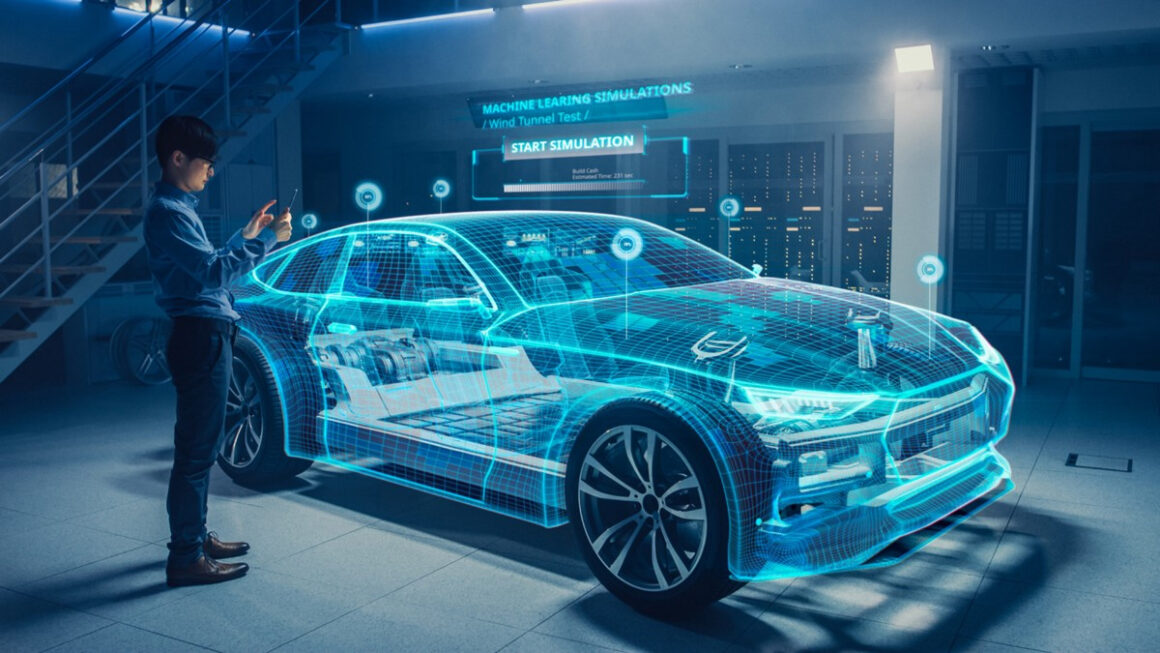Last week, Maruti Suzuki India showed off the Grand Vitara on its metaverse project, NEXAverse. Maruti says that the mid-size sport utility vehicle (SUV) will be the first car in the world that can be rented using a metaverse platform.
Shashank Srivastava, the business’s senior executive director of sales and marketing, said that the company plans to spend 10-15%, or Rs 6–8 crore, of its innovation budget on the metaverse. He then says that this is just “the first step.”
Srivastava says that the change will require the organization to not only keep up with how quickly new technology changes, but also work on improving and expanding the services they already offer by adding new models, applications, and features.
Automakers like Maruti are not the only ones jumping on the metaverse bandwagon. MG Motor India was the first company to start working in the metaverse. Last month, they launched the MGverse. The Swedish luxury car company Volvo Cars also launched the XC40 Recharge on the VolvoVerse before the big event on July 21.
The main reason these automakers are getting into the metaverse is to make the customer experience better, since more and more buyers, especially younger ones, prefer to do business on digital platforms.
Most carmakers have digitalized 17–20 of the 28 points where a customer interacts with a car. The Global State of Consumer Tracker Survey 2021 from Deloitte says that in the future, things like choosing a financial option and the documents that go with it will be done digitally.
“With the metaverse being the latest buzzword, the automotive sector is all set to give in to the hype and grab a slice of the shared worlds driven by virtual products,” says Ashwani Arora, executive director of Market Xcel, a market research company that offers customized research solutions.
Automakers think of the metaverse as a lot more than just a place to show off their latest products. Gaurav Gupta, the company’s chief commercial officer, says that MG Motor India, which markets itself as a “auto tech brand,” has everything under control. “We’re the only company that’s said exactly how it plans to grow the MGverse.” He says that it will be used for more than just business-to-consumer transactions; it will also be used for business-to-business transactions.
Part of MGverse are the Explore & Creator Centre, the NFT Gallery, the virtual MG Car Club, a gaming arena, and the MG Knowledge Centre for workers.
In the Explore & Creator Centre, users can customize, add accessories to, and make their own models of MG cars. They can also take a virtual test drive. The NFT Gallery will be a kind of online museum. The virtual MG Car Club is a digital copy of the real MG Car Club. Members can talk to each other and see events and performances that are only for members. The MG Knowledge Centre will teach MG employees and partners new things and help them improve their skills, and the gaming arena will have video games.
MG is also one of the first car companies to release a collection of NFT cars. “MG India gave out 1,100 tokens that were worth between Rs 500 and Rs 60,000.” Gupta adds, “The whole property was bought.” The business plans to give out more of these tokens this year.
How the metaverse makes sense
“The traditional ways in which we think about customer interaction are going to be completely transformed. None of the conventional ways of dealing with a customer are going to be applied anymore, and companies will have to re-imagine the whole exercise,” he says.
Aside from the car industry, companies in banking, insurance, and agriculture have also made their own metaverse platforms. Ghosh says that most of them got their start in the B2B market, with the exception of auto and retail.
NFTs have also been used a lot in the car business. Aside from the art world, which works with clients in the digital world, the automotive industry is one of the most likely to use NFTs.
Several global automakers, like Hyundai Motor Co., Bentley, Lamborghini, and McLaren Automotive, have sold archival materials, scale models, merchandise, art work, special and limited edition models, and so on in the last six months to capitalize on the history of their brands and the demand among car fans.
In March of this year, Mahindra & Mahindra and Tech Mahindra announced that they would be making their first batch of NFTs based on the Mahindra Thar SUV.
Vikas Kumar, vice president of Capgemini Invent, says,“The journey of digital assets in the metaverse has just started and will only proliferate further,More people will accept the metaverse as technology gets better.” He says that even though the metaverse is a computer simulation, the fun will be real.
Aside from customer involvement
Analysts who keep an eye on the industry think that the metaverse will affect all parts of the car business, from sales to supply chains, which could change how the business works.
Mercedes-Benz, for example, is using blockchain in addition to NFTs to track emissions in the cobalt supply chain. Cobalt is an important part of the batteries that power electric cars.
Arora says that the value of the automotive metaverse was $1,429.5 million in 2021, but it is expected to grow to $10,996.1 million by 2028, with an annual growth rate of more than 40.5% from 2022 to 2028.
The post Automobile manufacturers enter the metaverse to appeal to digitally sophisticated customers appeared first on NFT News Pro.
